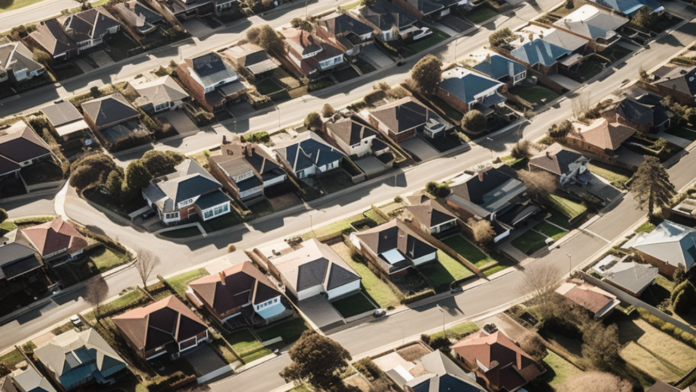Maria Irene
In the peaceful suburbia of Brisbane’s north, a home was gutted by an explosion, a gruesome testament to a tragic tale that may have culminated in suicide. The sole occupant, Garry Maidment, is now missing. His conspicuous absence is filled with grim speculations of law enforcement about a possible act of self-destruction, casting a sombre shadow over this unfortunate event.
As investigators sift through the ruins for clues, a disturbing narrative comes to light. Maidment’s final hours were marked by a series of haunting Facebook posts. Just an hour before the fatal blast, he chillingly hinted at his imminent death, his words underscoring the despairing struggles of a man seemingly caught in a vice grip of financial woes.
“Mortgage payments… Losing my home,” he wrote, the despair seeping through the digital lines. “I came up with a plan to financially hurt the bank and body corporate.” His ominous words revealed a seemingly resolute determination to avenge his predicament, a scenario he believed he wouldn’t have to face the repercussions of: “Do (you) know the good part? I do not have to spend any time in jail because I will be gone.”
His pain seems to have emanated from an economic system he felt had failed him. He directed blame towards the Reserve Bank and large businesses profiting from an environment that had left him, and others like him, struggling. His words echo the sentiments of numerous Australians who feel similarly marginalised by the widening wealth gap.
Indeed, Garry’s tragic end paints a stark portrait of the pressures brought on by Australia’s economic inequalities. Roy Morgan’s Wealth Report 2023 attests to this burgeoning chasm. The report revealed that Australia’s overall wealth increased by 7.0% between March 2020 and March 2023, primarily due to a staggering 43.2% increase in the value of owner-occupied homes, rising from $4.16 trillion to $5.95 trillion. A development that, on the surface, seems like a national accomplishment but a deeper dive paints a bleaker picture.
This newfound wealth is concentrated in the hands of a few. Half of the population, predominantly homeowners, currently accounts for a staggering 95.4% of Australia’s net wealth. In stark contrast, the bottom half, primarily renters and mortgage-holders, only saw their wealth share inch from 3.6% to 4.6%.
This disparity is further magnified when focusing on younger Australians. Individuals under 45 have seen their savings dwindle, particularly those in the critical demographic of 35-44, a phase of life often dominated by home buying and child raising. Furthermore, Australians under 35 are earning less in real terms than they did in 2008, intensifying their financial hardship.
The financial burdens for mortgage-holders, like Maidment, have been aggravated by the Reserve Bank of Australia’s rapid interest rate hikes. These monetary policy adjustments impact around one-third of mortgage-holding households, especially generation Xers and Millennials with young children. They have seen their mortgage repayments rise by around 50% as disposable incomes shrink due to inflation and increasing cost of living. Meanwhile, rents have surged by 11.8% nationally and by 17.0% across the combined capital cities in the year to June, amid record net overseas migration and a severe shortage of housing stock.
In contrast, a significant portion of Australia’s older generations, particularly Baby Boomers, appear unaffected by these fiscal shifts. In 2022, over $122.5 billion in cash-funded homes were sold, accounting for 25.6% of all residential sales in NSW, Queensland, and Victoria. Most of these cash buyers were older homeowners who had previously paid off their mortgages. This economic divide, clearly visible in the data, underscores the critical role of homeownership in wealth accumulation and social stability in Australia.
Garry Maidment’s tragic tale brings to life the harsh realities captured in these data points, showing the human cost of economic inequality. It serves as a stark reminder of the urgency to address the widening wealth gap in Australia and the associated socioeconomic challenges. The circumstances surrounding Maidment’s demise are a grim illustration of the desperation that may arise when people feel backed into a corner by insurmountable financial pressures.
Disclaimer: The circumstances surrounding Garry Maidment’s tragic passing are still under investigation. While financial hardships have been speculated as a potential contributing factor, it is important to remember that a definite cause has not been established. Our deepest condolences go out to Garry Maidment’s family and friends in these difficult times.
If you or someone you know is in need of help, please don’t hesitate to reach out to organisations like Lifeline or similar services in your region.


